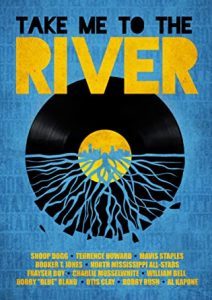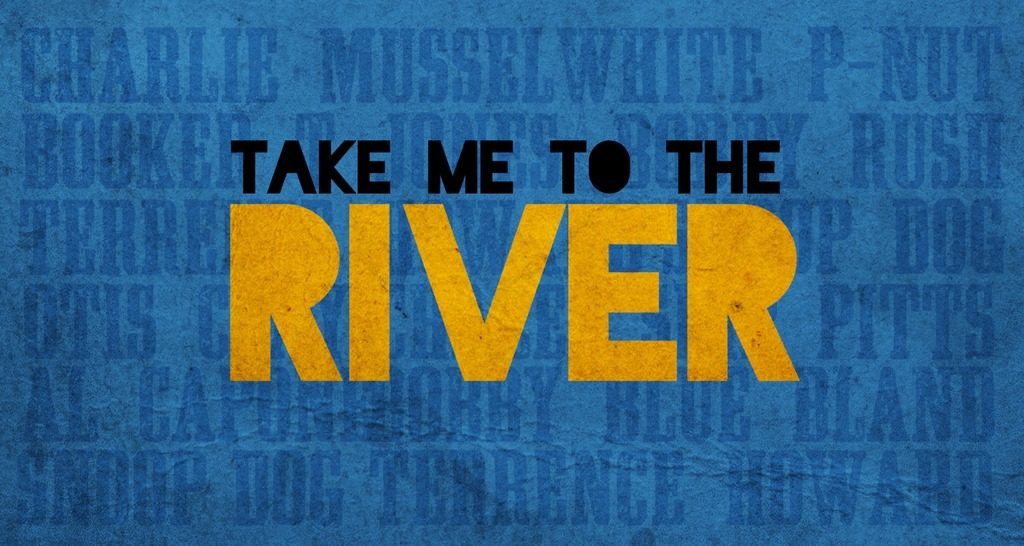 Two years after its initial release, the film, Take Me to the River, has been released on Netflix. This is a documentary about the soul of American music, particularly that of Memphis, Tennessee. While telling the story of Memphis and its music, this film centers around the recording of a new album. An album, produced by second generation Memphians that features legends from labels like Stax, Sun, and Hi Records, mentoring and recording with some of today’s greatest talent from the region.
Two years after its initial release, the film, Take Me to the River, has been released on Netflix. This is a documentary about the soul of American music, particularly that of Memphis, Tennessee. While telling the story of Memphis and its music, this film centers around the recording of a new album. An album, produced by second generation Memphians that features legends from labels like Stax, Sun, and Hi Records, mentoring and recording with some of today’s greatest talent from the region.
The brainchild of director, Martin Shore, Take Me to the River debuted at the SXSW Festival in Austin, Texas in 2014 but was four years in the making. Mavis Staples and Booker T. Jones were the first “mentors” to sign on. From there, legendary artists including Bobby “Blue” Bland, Hubert Sumlin, Charlie Musselwhite, William Bell, Bobby Rush, Otis Clay, Charles “Skip” Pitts, Lester Snell, Marvell Thomas, the Hodges brothers and more were added as modern-day mentors of the Memphis sound.
Their pupils and recording partners are young up-and-comers from Memphis and beyond. Child actor and rapper, Lil P-Nut, not only recorded a cover of “Trying to Live My Life Without You,” with Otis Clay, but also received some impromptu singing tips from Bobby “Blue” Bland. Bland and Yo Gotti record a modern cover of “Ain’t No Sunshine,” with an old soul feel. Academy Award winning rapper, Frayser Boy teams up with Bobby Rush on the Rufus Thomas classic, “Push and Pull.” And these are just some of the highlights.
The men recording and producing these cuts are themselves, Memphis legacies. Boo Mitchell is the son of Willie Mitchell, founder of Royal Studios. Luther and Cody Dickinson are both members of the North Mississippi Allstars, and sons of the legendary Jim Dickinson, who was a producer, guitarist, and pianist. The elder Dickinson worked with artists including Bob Dylan, Ry Cooder, the Rolling Stones and scores of others.
This film isn’t just watching artists in studios, however. It’s chock full of vintage footage of live concert performances, Memphis neighborhoods, and civil rights unrest, including the murder of Dr. Martin Luther King, Jr., and the aftermath that spelled the end of the Stax label and studio.
Many of the old timers share stories of how things were done back in their day and talk about one another’s accomplishments and failures. One of the most touching of these is when “Skip” Pitts once again runs into former band mate, Ben Cauley, describing to the filmmaker how Cauley is the only survivor of the plane crash that took the life of Otis Redding. Another is the obvious excitement of Mavis Staples when Luther Dickinson learns the guitar part of a song written by her father, “Pops.”
Also, particularly hard hitting, are the still photos of some of the elder artists, with production notes stating it was their last, or almost final session. Artists that passed away after appearing in this film include Bobby “Blue” Bland, Hubert Sumlin, Charles “Skip” Pitts and Teenie Hodges.
There are great interview clips with other famous Memphis music makers that were even more behind the scenes. Art Bell, owner of Stax Records and Deanie Parker who was not only a singer but secretary, liner notes writer, photographer, editor, publicist and more, all for the Stax label.
One of the greatest scenes is near the end when three generations of artists have only a short time to record a piece. William Bell, Snoop Dogg, and students from the Stax Academy, record, “I Forgot to be Your Lover.” That, in itself, is a pretty amazing feat. What becomes, even more, mind boggling is that the young students learned and recorded the song, Snoop wrote and recorded his rap verses, and the entire project was in the can in less than 30 minutes.
Narrator, Terrence Howard begins the film with the words, “There are special places on this earth. Places of origin. The Mississippi Delta is one of those places.” Nothing could be closer to the truth, and Take Me to the River does an outstanding job of documenting not only the origin of Memphis music but its passing to the next generations.
With this gem of a documentary streaming on Netflix, we would also urge everyone to purchase a copy of the DVD. If for no other reason, then knowing that over 75% of the money made in sales goes to musician funds in Memphis. These include the The Soulsville Foundation, The Blues Foundation HART Fund, and the Memphis Church Health Center.
Title: Take Me to the River
Year: 2014
Director: Martin Shore
Producers: Martin Shore & Cody Dickinson
Running Time: 1 hr. 40 mins.
Take Me to the River


